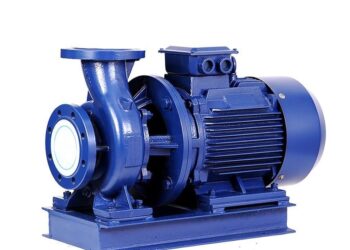Buying an existing manufacturing firm, whether you’re already in the field or want to go into it for the first time, may be a great investment and growth plan.
When it comes to buying a company, there are a variety of legal concerns to consider, just as there are in any sector, therefore it’s a good idea to get legal guidance before doing so.
With that in mind, here are some factors to keep in mind when purchasing a manufacturing company:
Due diligence is required.
The most crucial aspect of purchasing any company is knowing precisely what you’re paying for. This entails double-checking all of the company’s information and ensuring that the figures add up. It’s in the vendor’s best interest to sell the firm for the highest price possible, so double-check everything they tell you.
You will undoubtedly need to review and analyze a large number of papers. Consider how effectively the firm is positioned by keeping an eye out for local rivals, and if the majority of the income comes from one or two big customers, consider what would happen if those clients left.
And solely on risk mitigation, this whitepaper looks at how to accomplish it as well as how to develop brand trust. It’s about the dairy sector in Australia, but it has important lessons for any processing company – notably on the increase of counterfeiting.
Check all equipment, machinery, and inventory thoroughly.
The value of the plant, equipment, and stock you’re buying as part of the firm will account for a significant portion of the total cost, so be sure you’re getting a good deal on the assets you’re getting.
Check the age and condition of all equipment, the number and quality of all goods, and intellectual property assets like the company website and any patents. Don’t take the seller’s word for it when it comes to the worth of these products (remember, they’ll try to obtain the greatest price possible). You may have these products examined by a third party if required.
Make that you have all of the required certificates.
Certain permissions or certificates may be required for the manufacturing company you want to acquire. There may be certification requirements if the firm includes packing food and drinks in a safe manner. Make sure you’re familiar with the appropriate laws in your sector and state.
Disputes and resolving them
Dissensions may emerge for a variety of causes. These are usually information about the company and how much it is worth. Among the most popular instances are:
- Concerning takings: the vendor may have urged friends’ customers to place additional, substantial orders during the due-diligence period to enhance takings, or the vendor may have misrepresented the takings.
- When it comes to stock and stock valuation, there are cases where the buyer expected more shares or the contract was unclear about how stock would be valued.
- In terms of what is being sold, a badly worded contract may not be clear enough when it comes to intellectual property like company names, websites, logos, and patents.
The easiest method to prevent a legal conflict is to have a company lawyer create paperwork and carefully verify the contract and all other documents before you complete the transaction.
If a disagreement arises, a lawyer may assist you in resolving it. They will be able to advise you on the best course of action for your circumstance, including the most suitable method of conflict settlement.
Advice from a lawyer
This might be the most crucial step in the procedure. If you’re unclear about anything, your lawyer can help you figure it out, and, as previously said, they’ll be crucial for preparing and reviewing vital paperwork to ensure everything is in order.
Get the guidance of a skilled business lawyer when purchasing a manufacturing company. They will be able to guide you through each stage and guarantee that nothing is forgotten.

















